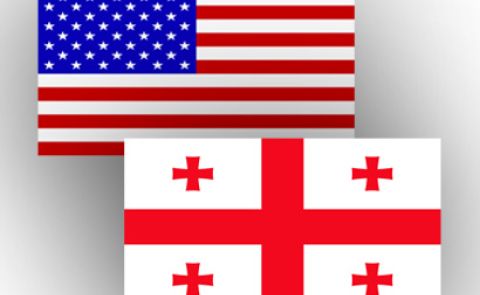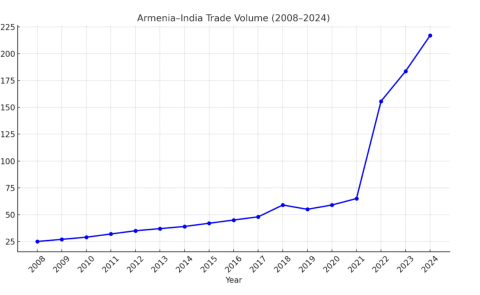
Russia’s Invasion of Ukraine Reshapes Georgia’s Position

The post-invasion era in the wider Black Sea region will mark structural changes in how the West perceives its place in the region, regards Russia, and how to develop further support for the aspiring democracies of Ukraine and Georgia.
The Russian invasion into Ukraine, no matter the results, defeat of Ukraine or Russia’s inability to impose its will on Kyiv, will have tremendous effects on the wider Black Sea region and indeed the European security architecture.
And Georgia is key to watch here. It is yet another country promised NATO memebrship in 2008 and that was mentioned in Russia’s radical demands made in December last year. Russia’s emphasis on Ukraine has been understandable – it is a country the control over which will allow Moscow to dominate large part of what once constituted Soviet Union space. It will also allow Russia to control much of the Black Sea.
In the longer term, the invasion of Ukraine means Russia has finally switched into territorial empire mode. If before Moscow was cautious about which territory could have been annexed or attacked, the blatant aggression against the entirety of Ukraine is a new, explicitly imperial era for Russia. It is highly unlikely that Moscow will be winning in the longer run though. Even if Kyiv is defeated, the occupation of Ukraine, however short, will cost Russia billions of dollars, further international isolation, and irreversibly antagonistic Ukrainian population. Long-term prospects for Moscow therefore seem grim.
Yet, Russia also looks at other fronts. And Georgia could be a primary aim. As mentioned above, the country has been a topic of hot debate in terms of whether Tbilisi should be granted NATO membership. Should Russia achieve basic, however pyrrhic, success in Ukraine, Georgia could be facing Russian demands of officially reneging on the country’s engagement with NATO and the EU. Faced with this potential challenge, Tbilisi will have little political military and economic power to withstand Russian ultimatums or even military moves. Russian occupation forces in Abkhazia and Tskhinvali Region serve as a decapitation force against Georgia’s resolve.
This quite naturally begs the question of what the collective West and especially the US could do to help Georgia avoid direct military threats from Russia and build a more resilient ties between Tbilisi and the West. But a crucial question is whether the country is within America’s defense perimeter? The support the West has provided to Ukraine shows astounding shifts in the trans-Atlantic community. The whole reservations about NATO’s eastward expansion could now be reconsidered. The emerging argument is that the alliance brings stability rather than tensions. Had the Baltic states not been admitted in the alliance in early 2000s, the instability and Russian aggression of varying degree would have most certainly touched those states.
This could be a breaking point for the geopolitics of the wider Black Sea region. Georgia is a close partner to the US and much of what has been happening around Ukraine is tightly linked to Georgia. It is certain that after the war ends in Ukraine, the West’s approach to this country will no longer be the same as before. Action will prevail over hesitancy. The country might not become NATO member straight away or any time soon, but the military cooperation will be raised to a qualitatively different level especially as Ukraine proved how militarily capable it is. The country now has the single most experienced army in the world at fighting the Russian war machine.
Defending and helping Ukraine will also mean that the Western approach toward Georgia will be undergoing critical changes. First, the argument that Georgia was to blame for 2008 war will recede further away as incompatible considering what Russia has been doing in Ukraine. This will be a huge victory for Tbilisi. The second most visible change will likely take place in economic considerations. The EU might become ever growingly willing to commit to the economic and institutional expansion. The fatigue with the Eastern Enlargement well might come to an end. For the Georgian diplomacy therefore, it is of utmost importance to tie the country’s geopolitical vector with that of Ukraine.
Yet another diplomatic thrust by Georgia should be made in its relations with the US. As America has successfully rebuilt the trans-Atlantic ties and now has Germany as an emerging central element in its European foreign policy, there is a strong possibility of forward-looking EU and NATO backed up by American military and economic power.
Georgia might not become NATO or even EU member state soon, but the reinvigoration of the Western unity could create a momentum behind Tbilisi’s more active engagement with Brussels and Washington. This could take shape in more active military cooperation and greater economic connection.
Threats from Russia will persist, but the level of their intensity inherently will depend on the Western unity/disunity. With wide-ranging changes in Germany’s foreign policy, Ukraine’s military persistence against Russian invasions, and America’s strong leadership, Georgia might be witnessing a new breathing space for its Western aspirations – the momentum that lacked for the past several years.
Emil Avdaliani is a professor at European University and the Director of Middle East Studies at Georgian think-tank, Geocase.
See Also


Armenia and India: Building New Bridges in Trade and Strategy

Between Tehran and Tel Aviv: Azerbaijan’s Neutrality Dilemma Amid Rising U.S.-Israel Tensions with Iran

From Neorealism to Neoliberalism: Armenia’s Strategic Pivot in Foreign Policy After the Nagorno-Karabakh Conflict

Georgia and Russia: New Turn in Bilateral Relations

